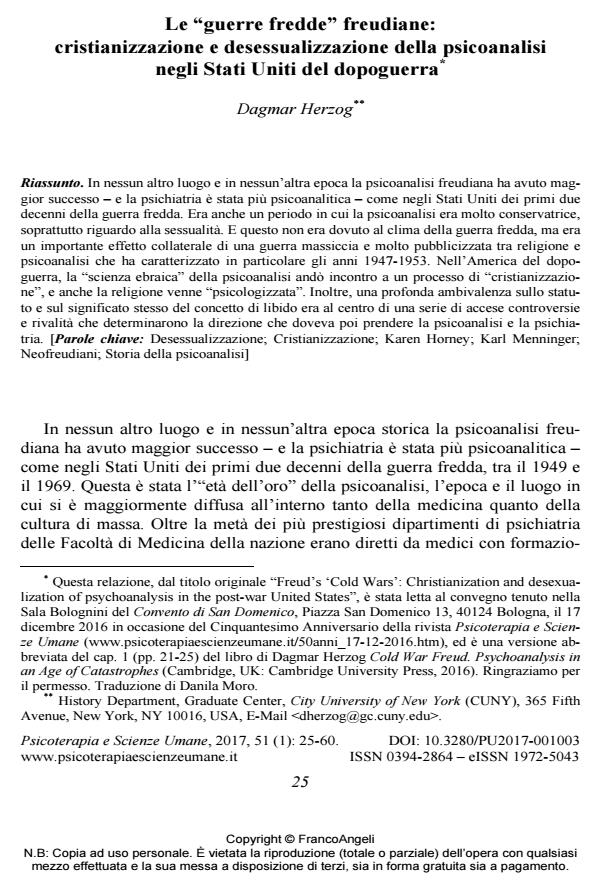Freud’s "Cold Wars": Christianization and desexualization of psychoanalysis in the post-war United States
Journal title PSICOTERAPIA E SCIENZE UMANE
Author/s Dagmar Herzog
Publishing Year 2017 Issue 2017/1 Language Italian
Pages 36 P. 25-60 File size 696 KB
DOI 10.3280/PU2017-001003
DOI is like a bar code for intellectual property: to have more infomation
click here
Below, you can see the article first page
If you want to buy this article in PDF format, you can do it, following the instructions to buy download credits

FrancoAngeli is member of Publishers International Linking Association, Inc (PILA), a not-for-profit association which run the CrossRef service enabling links to and from online scholarly content.
In no other time and place was Freudian psychoanalysis more successful, and psychiatry more psychoanalytic, than in the first two Cold War decades in the U.S. This was also a time and place when psychoanalysis was intensely conservative - especially sexually conservative. This was not merely a product of generalized Cold War trends, but rather a major side-effect of massive, widely broadcast battles over the relationship between religion and psychoanalysis that marked the years 1947-1953 in particular. The "Jewish science" of psychoanalysis underwent a process of "Christianization" in the post-war U.S. - even as religion became "psychologised". In addition, the paper shows how deep ambivalence about the status and the very meaning of the concept of "libido" was at the heart of a succession of fierce controversies and rivalries that helped determine the directions taken by post-war psychoanalysis and psychiatry.
Keywords: Desexualization; Christianization; Karen Horney; Karl Menninger; Neo-Freudianism
Dagmar Herzog, Le "guerre fredde" freudiane: cristianizzazione e desessualizzazione della psicoanalisi negli Stati Uniti del dopoguerra in "PSICOTERAPIA E SCIENZE UMANE" 1/2017, pp 25-60, DOI: 10.3280/PU2017-001003